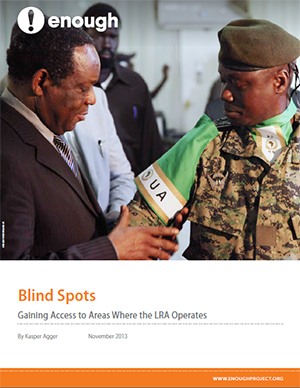
Introduction
The Lord’s Resistance Army, or LRA, has grown weaker in the past two years as the Ugandan-led and U.S.-supported counter-LRA African Union Regional Task Force, or AU-RTF, has pursued its mission to eliminate the rebel group. The regional force,however, lacks the logistical capacity and authorization to access key areas where LRA groups operate in remote parts of three countries: the Democratic Republic of the Congo, or DRC; the Central African Republic, or CAR; and the Kafia Kingi enclave in South Darfur, Sudan.
The endgame of removing LRA leader Joseph Kony from the battlefield and neutralizing the LRA is imperiled by the lack of access to wide swathes of Central Africa where the group still hides. The AU forces must secure access to those areas as well as additional helicopter assets to increase rapid force mobility in order for the mission to succeed.
A fully operational AU-RTF that can access these key areas within the context of a regional agreement would allow greater progress in the counter-LRA mission. More robust international support from the United States and the European Union for the diplomatic efforts of the AU special envoy on the LRA issue and the United Nations Regional Office for Central Africa, or UNOCA, could advance efforts toward a regional access agreement. Stronger coordination among U.N. peacekeeping and support missions in the region would also enhance the operational effectiveness of the AU-RTF. Finally, to complement more robust diplomatic and military measures in support of the mission, the international community should also support local-level civil-society institutions that promote regional cooperation through exchange visits and cross-border defection programs.
Because of important advances over the past couple years in the counter-LRA operation, the LRA is down to perhaps 250 core fighters. The LRA, however, has shown a capacity over its 25-year history to survive in a shrunken state and then expand rapidly when circumstances and external support allow. That is why eliminating its safe havens is essential.

